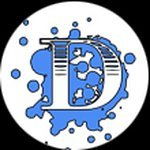The Politics of Diagnosis
In a 2014 interview with NBC’s Brian Williams, Jerry Seinfeld confessed that he suspected he might be on the Autism Spectrum. This casual quip stirred an angry backlash from the ASD community. Some in the community felt his casual self-diagnosis was trivializing the struggles of people on the spectrum -- 60% of whom are blocked from employment, and constantly judged and targeted by neurotypical bosses and coworkers.
Furthermore, I will admit that when I disclose my having been diagnosed with Dyslexia and ADHD, people often say, “I think I might have ADD.” or “I get so dyslexic after 3 in the afternoon…” They use my labels for cultural memes of self-deprecation. Sometimes, a defensive response will rise up in me.
“How dare you?” I think to myself.
“Did you spend seven years of supplemental tutoring just to learn basic reading? How many times have you lost your keys? Your favorite jacket?” It can feel as if the act of casual self-diagnosis marginalizes the real struggles we face.
Nevertheless, it is a fact; the systems that decide who gets a divergent label is at its heart political, not scientific. The neurotypical school system works to limit the number of diagnosed people to 14% of the population. Most school systems are under pressure to reduce that number to 12%. Because the neurotypical system charges at least twice as much to educate divergents, there is constant pressure to reduce our numbers and save money.
Meanwhile, the science suggests that taken together we actually represent a much larger cross section. Sally Shaywitz of the Yale Center for Dyslexia & Creativity believes that 20% of the population fits the label of Dyslexia. A 2016 CDC report found that that 9.4% of children will receive an ADHD diagnosis, and they have doubled the number predicted to have ASD to 2% and climbing. In other words, the science suggests that as many as 30% of the population is divergent, but the schools want to limit that number to 12%. It stands to reason that somewhere between 10% and 15% of the population are in fact divergent but undiagnosed. Furthermore, almost all adults who receive an adult diagnosis begin with a self-diagnosis which leads them to seek an evaluation -- often costing thousands of dollars out of pocket.
Here at Divergents Magazine we encourage the undiagnosed millions to stand up and identify as Divergent, to join the growing community. When someone like Jerry Seinfeld or David Burn identifies as divergent, they use their influence to shine light on all of us. Yes there is a big difference between Amanda Baggs and David Byrne; Byrne gets invited to a lot more parties, but they both add tremendously to all of our lives.
And that’s the thing about a spectrum, it is a spectrum-- the farther out one finds oneself on the spectrum, the more difficult it will be to live in the systems designed for the majority . Take for example the spectrum of height; we all fall somewhere on the height spectrum with ramifications for our abilities. Tall people are better at basketball and changing light bulbs; short people are better at hockey and hiding in small places. Meanwhile, out at the far ends of the spectrum of height it becomes more difficult to fit the mainstream. People who are very tall need special clothing, have trouble in buildings with low ceilings and may experience medical issues. People who are very short, often need to modify aspects of their environment as well. Although Amanda Baggs is clearly farther out on the spectrum than David Byrne, I find them equally inspiring as voices of the culture, and we need all of these voices in order to better understand what it means to be human.
Divergents Magazine encourages the millions of undiagnosed people, living with a sense of isolation and shame, never quite fitting the expectations of the world, to understand that they are not alone. Perhaps you have lived your life as a misfit. Perhaps you have struggled with depression, addiction, anxiety -- any of the ancillary challenges that stem from the core disconnect between neurotypical expectations and your truth. Well then divergents is for you and your children. We hope you hear your story in the fearless words of our authors. We hope you recognize the vivid tapestry of feeling captured by our artists. We hope that as you read and take in these images, you come to accept that there is nothing truly wrong with you; you are different but you are still profoundly human. And you are not alone.
